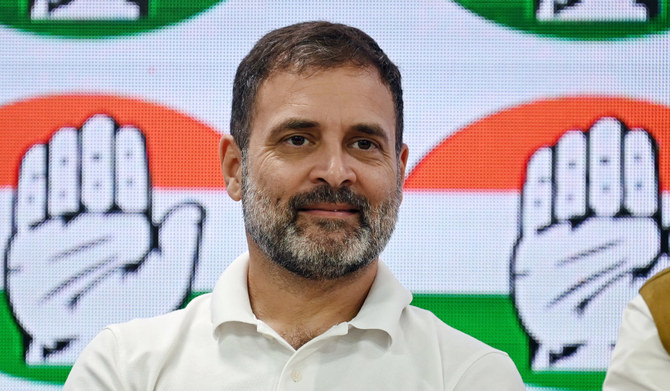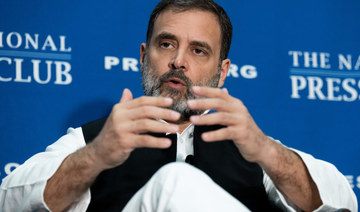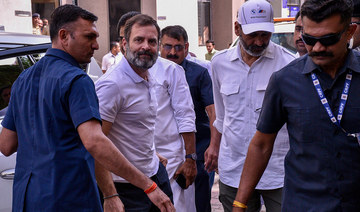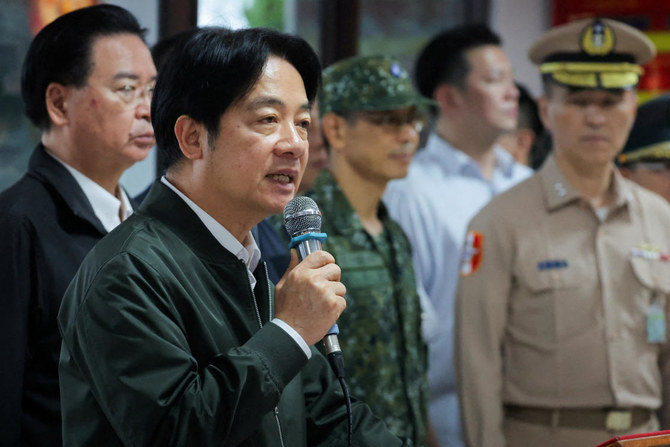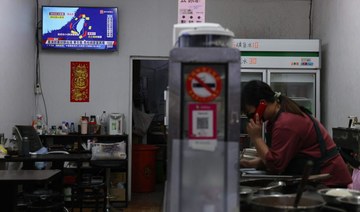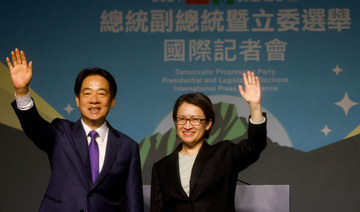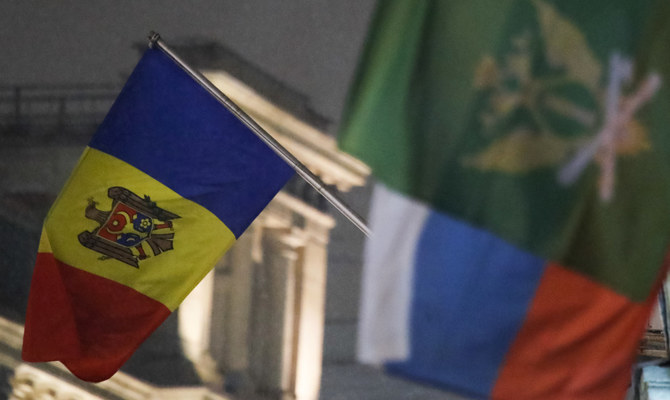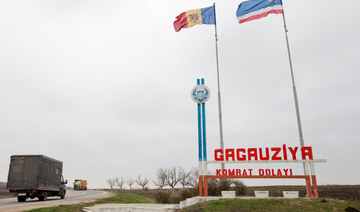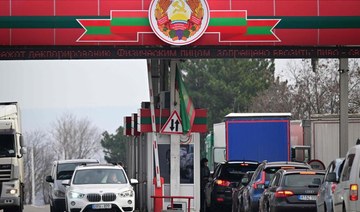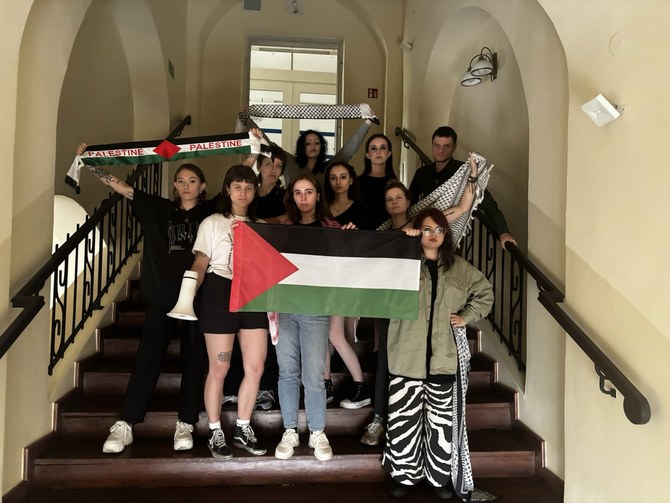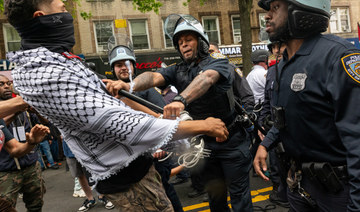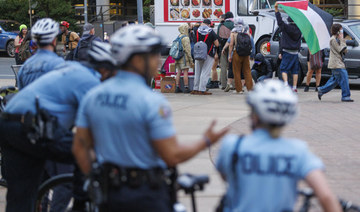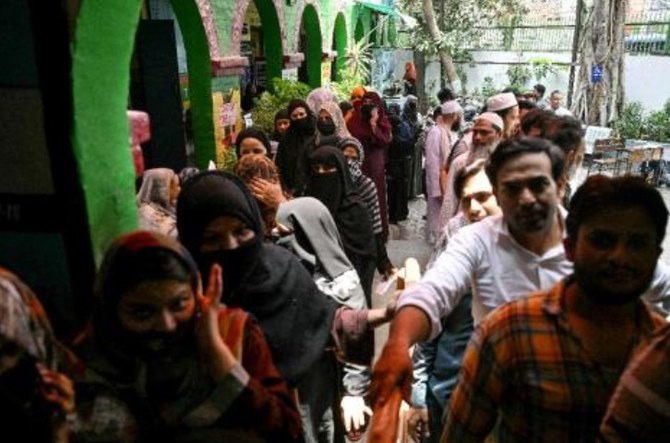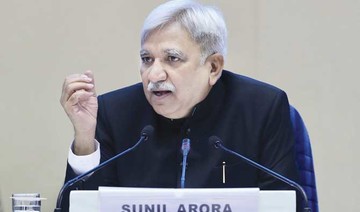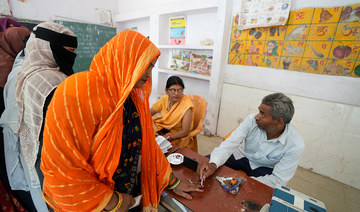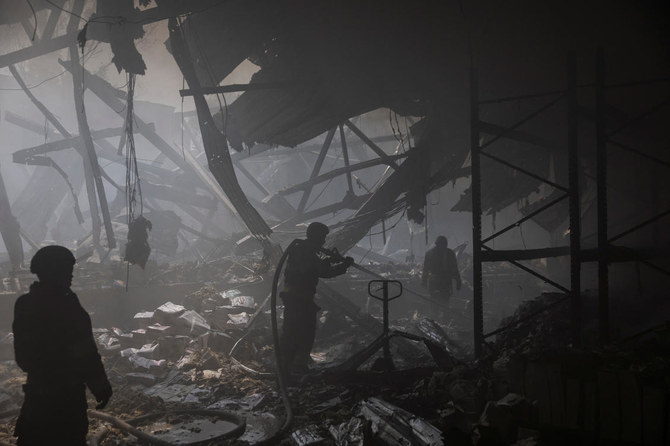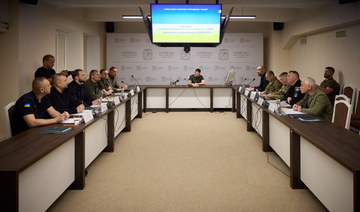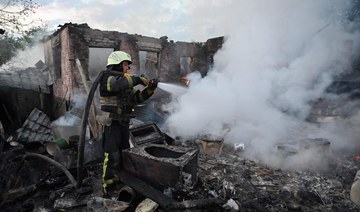NEW DELHI: India’s top court suspended opposition Congress party leader Rahul Gandhi’s defamation conviction on Friday, allowing him to return to parliament and contest national elections due next year.
Gandhi was convicted in March in a case brought by a lawmaker from the ruling Bharatiya Janata Party (BJP) in the western state of Gujarat over comments he made in 2019 deemed insulting to Prime Minister Narendra Modi and others with the same name, including the lawmaker.
“How come all thieves have the name Modi?” Gandhi had asked in an election campaign speech, referring to two fugitive businessmen, both surnamed Modi.
Gandhi, 53, from a dynasty that has given India three prime ministers, was sentenced to two years’ imprisonment but the jail term was put on hold and he was granted bail.
He also lost his parliamentary seat following the conviction, since lawmakers sentenced to jail terms of two years or more are automatically disqualified.
After the Supreme Court’s ruling, the lower house of parliament should now formally reinstate Gandhi.
Lower courts and the high court in Gujarat, where the BJP holds power, had rejected appeals by Gandhi to suspend the conviction, prompting the appeal to the Supreme Court.
Besides seeking suspension of the conviction, Gandhi has also sought to overturn it. That challenge has yet to be heard by the lower court in Gujarat.
“Come what may, my duty remains the same. Protect the idea of India,” Gandhi said in a post on social media platform X, formerly Twitter, in his first comments since the court ruling.
“If not today then tomorrow, if not tomorrow then the next day, truth prevails. But whatever happens, my path is clear,” he later told reporters at a party news conference. But he did not take questions.
Supreme Court judge Justice B.R. Gavai said the lower court had not given any reasons for handing down the maximum sentence of two years’ jail which led to his disqualification from parliament.
While Gandhi’s comments about Modi were “not in good taste,” the conviction not only punished Gandhi but also voters who had elected him to represent them, said Gavai, who headed a bench of three judges which suspended the conviction.
“VICTORY OF TRUTH“
Congress members broke out into celebration, shouted slogans, waved giant party flags and set off firecrackers at party headquarters in New Delhi.
Gandhi, who had to vacate his official residence following his disqualification and move in with his lawmaker mother, Sonia Gandhi, waved to the celebrating members as he visited the party office with his sister, Priyanka Vadra.
Adhir Ranjan Chowdhury, leader of Congress in the lower house of parliament, said he and other Congress leaders met the speaker and sought Gandhi’s reinstatement to allow him to take part in a no-trust vote opposition parties have moved against Modi’s government.
“Rahul Gandhi has got relief from the false allegations that were made against him,” Chowdhury told reporters. “This is the victory of truth...it will cost Modi heavily.”
Gandhi’s disqualification from parliament was only the second in history and came as a blow to opposition parties a year ahead of parliamentary elections.
It galvanized the opposition to form an alliance of 26 parties called “INDIA” (Indian National Developmental Inclusive Alliance) to jointly take on the BJP in 2024.
The alliance also moved a no-trust motion against Modi’s government over what it says is the government’s failure to tackle ethnic clashes in the northeastern state of Manipur in which at least 180 people have been killed since May 3.
The motion is scheduled to be taken up for debate in parliament on Aug. 8 and Modi is expected to reply on Aug. 10 before it is put to vote.
Gandhi will be a key speaker during the debate if he is reinstated by then, as expected.
The BJP government enjoys a strong majority in parliament and the vote poses no risk to its stability. But it is seen as an opportunity for the opposition to score political points.
Also, Modi remains widely popular and the BJP is a strong favorite to win a third term on the back of its welfare and Hindu nationalist agenda despite high unemployment and uneven growth.
There was no immediate reaction to the court ruling from the BJP.
“We will fight the battle legally during the case’s trial...on behalf of the Modi community,” said Purnesh Modi, the Gujarat lawmaker who complained against Gandhi’s speech.




